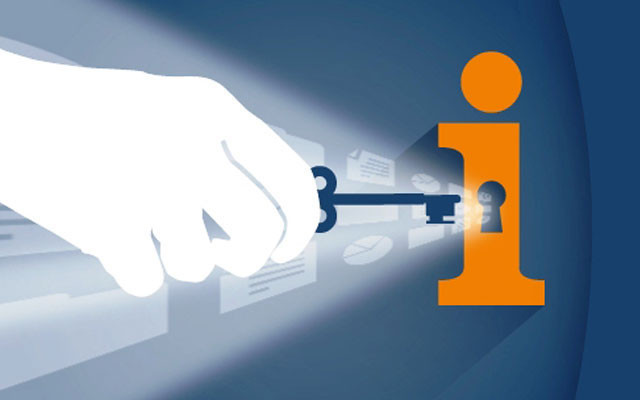
Access to information and attorney-client privilege: three-part test explained by the Ombudsman

According to the law, everyone has the right to access public information. At the same time, access to confidential, secret and proprietary information may be restricted under a set of certain conditions (there are only three).
On August 14, representatives of the Office of the Ukrainian Parliament Commissioner for Human Rights conducted a training for the Secretariat of the Ukrainian National Bar Association and the Bar Qualification and Disciplinary Commissions on the topic «Application of the three-part test in the activities of bar self-government bodies in access to public information».
Valentyn Gvozdiy, Vice President of the UNBA, BCU emphasized the importance of observing the guarantees of the right to access public information and drew special attention to the specifics related to the practice of law. «When we talk about access to information and what kind of information should be provided or disclosed, it is important to take into account the so-called three-part test, - he said. - We remember that we often have information that contains attorney-client privilege. Such data may be concealed when documents are made public in order to avoid the possibility of disclosing their essence».
According to Art. 22 of the Law «On the Bar and Practice of Law», the attorney-client privilege is any information that has become known to the advocate, assistant advocate, trainee advocate, person who is in an employment relationship with the advocate, about the client, as well as the issues on which the client (person who was denied the conclusion of a legal aid agreement) applied to the advocate, law office, law firm or law office, (a person who was denied the conclusion of the agreement for provision of legal aid) applied to the advocate, law firm or law office, the content of the advocate's advice, consultations, explanations, documents drawn up by him or her, information stored on electronic media, and other documents and information received by the advocate in the course of his or her practice of law. Persons guilty of unauthorized access to or disclosure of the attorney-client privilege shall be liable under the law.
The speaker of the training, Oleksandr Yurchenko, an employee of the Department for Monitoring the Observance of Information Rights of the Secretariat of the Ukrainian Parliament Commissioner for Human Rights, reminded that Article 6 of the Law «On Access to Public Information» defines three types of information that can be classified as restricted information: confidential, secret and proprietary information.
According to him, secret information refers not only to state secrets. There is a fairly wide list (about thirty types) of other secrets related, in particular, to the exercise of professional activities by persons. This also includes the attorney-client privilege.
The Law «On the Bar and Practice of Law» defines attorney-client privilege, but does not regulate the issue of access to public information and the procedure for its restriction. Therefore, according to O. Yurchenko, when requesting information that may constitute attorney-client privilege, a three-part test should be applied.
Its content is enshrined in part 2 of Article 6 of the Law «On Access to Public Information». Restriction of access to information is carried out in accordance with the law, subject to the following requirements:
1) exclusively in the interests of national security, territorial integrity or public order in order to prevent riots or criminal offenses, to protect public health, to protect the reputation or rights of others, to prevent the disclosure of information received in confidence, or to maintain the authority and impartiality of justice;
2) disclosure of information may cause significant damage to these interests;
3) the harm from disclosure of such information outweighs the public interest in obtaining it.
The representative of the Ombudsman's Office also pointed out that the content of the attorney-client privilege implies that it includes information or documents received from third parties and containing information about them. And such information may be disseminated subject to the requirements of the legislation on personal data protection.
«We are not talking about secret information here, but rather confidential information, personal data. If we open the Law on Personal Data Protection, in particular Article 16, it states that the procedure for third parties to access personal data held by a public information manager is determined by the Law on Access to Public Information. In other words, from the Law «On the Bar and Practice of Law» we have a reference to the Law «On Personal Data Protection», and from there, in turn, there is a reference to the Law «On Access to Public Information». That is, if personal data of third parties are requested that you have in your possession and can be attributed to the attorney-client privilege, then the restriction will be based on a three-part test, through the «mediation» of the Law on Personal Data Protection», - said O. Yurchenko.
He advises to check the practical aspects of the three-part test with the Resolution of the Plenum of the Supreme Administrative Court No. 10 dated September 29, 2016 «On the practice of application of legislation on access to public information by administrative courts».
© 2026 Unba.org.ua Всі права захищені
"Національна Асоціація Адвокатів України". Передрук та інше використання матеріалів, що розміщені на даному веб-сайті дозволяється за умови посилання на джерело. Інтернет-видання та засоби масової інформації можуть використовувати матеріали сайту, розміщувати відео з офіційного веб-сайту Національної Асоціації Адвокатів України на власних веб-сторінках, за умови гіперпосилання на офіційний веб-сайт Національної Асоціації Адвокатів України. Заборонено передрук та використання матеріалів, у яких міститься посилання на інші інтернет-видання та засоби масової інформації. Матеріали позначені міткою "Реклама", публікуються на правах реклами.